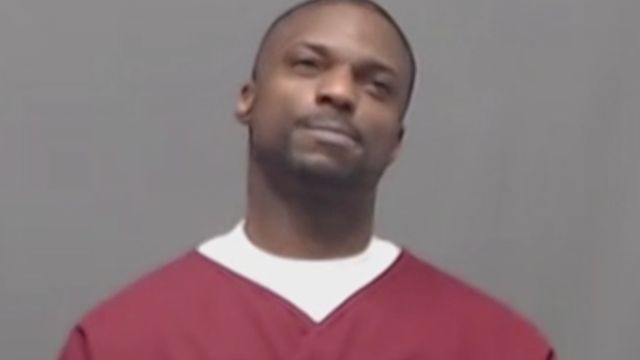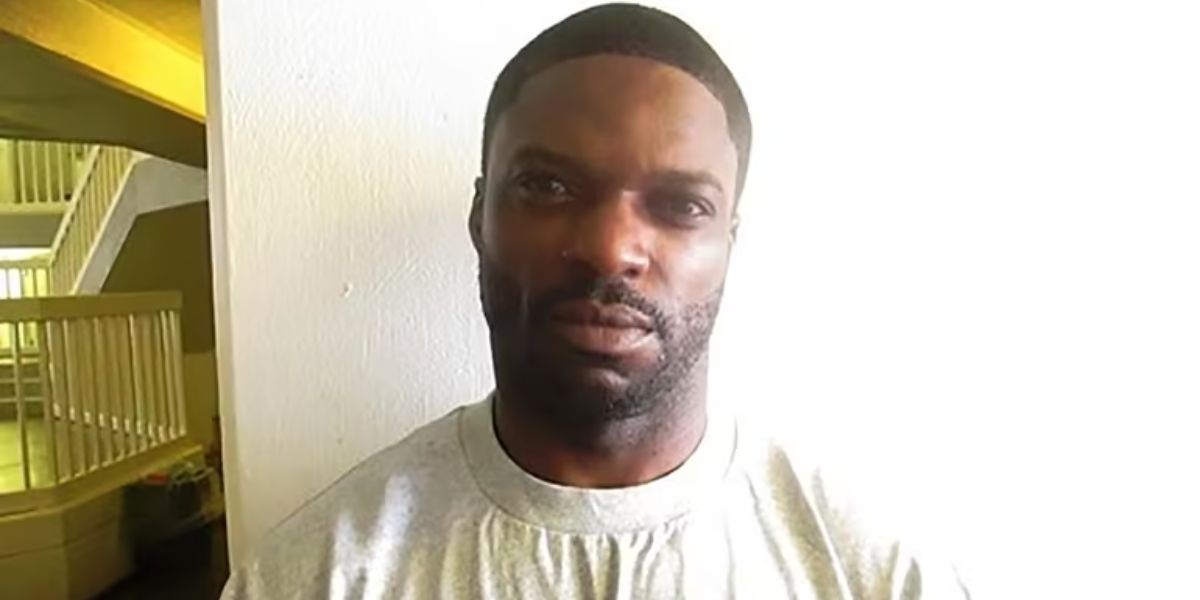Final Justice: Oklahoma Executes Man for 2002 Double Murder
Debarylife – The first execution of the year took place in Oklahoma on Thursday when a man convicted of killing two people there over 20 years ago was put to death. According to the Department of Corrections, Michael Dewayne Smith was given a fatal injection in the Oklahoma State Penitentiary in McAlester and was declared dead at 10:20 a.m., as CBS News was informed.
The execution came following the state’s contentious 2021 decision to reinstate the death penalty in response to botched executions that raised concerns about its procedures.
Smith said, “Nah, I’m good,” in response to the question of whether he had any final remarks, according to the Associated Press.
Following his conviction two decades prior for the murders of 21-year-old Sharath Pulluru, a store worker, and 41-year-old mother Janet Moore, Smith, 41, was given the death penalty in Oklahoma. Authorities claim that on February 22, 2002, Smith was already on the run following a previous killing when the shootings that murdered them were carried out independently.
The Oklahoma execution process started at 10:09 a.m. on Thursday and took just over ten minutes, according to a statement provided to CBS News by the state director of prisons, Steven Harpe.

That statement states that at 10:14 a.m., Smith was deemed unconscious. According to the director, Smith asked to be joined in the death chamber by a spiritual advisor. The prisoner did not request a final meal.
“Today’s event and the circumstances that led to it have affected many people — especially the family and friends of victims Janet Moore and Sharath Pulluru,” Harpe stated. “As an agency, we carried out the court’s orders according to our high standards of professionalism and respect for those in our custody, ensuring dignity for everyone involved in the process.”
Records indicate that Smith made several attempts to appeal his conviction during the majority of his incarceration. Smith and his legal team have maintained, among other things, that despite his prior admission to both crimes, he is not guilty of the two murders for which he was found guilty.
They argued for clemency on the grounds of an apparent past drug addiction and intellectual handicap because Oklahoma would not be able to execute him if the U.S. Supreme Court ruled against the latter. Smith’s legal appeals were all unsuccessful.
SEE MORE: Georgia Inmate Faces Charges for Allegedly Mailing Bombs to Alaska and D.C.
Oklahoma Attorney General Gentner Drummond has requested that the state’s Pardon and Parole Board reject Smith’s bid for mercy ahead of a hearing in March that would determine his fate.
Drummond issued a statement saying, “Michael Smith’s outrageous claims of innocence have been repeatedly rejected in court.” “He is a vicious assassin who has repeatedly admitted to his atrocities. I firmly believe that his request for clemency ought to be turned down.”
Drummond claimed that Smith’s confession was supported by evidence discovered at the locations of the two killings. Additionally, he rejected the prisoner’s request for leniency on the grounds that Smith allegedly had an intellectual handicap, stating that Smith’s IQ levels made that claim “statutorily ineligible.”
Smith expressed his “deepest apologies and deepest sorrows to the families” of the victims during the court, but he denied any role in the killings, according to the Associated Press.
“These are not the atrocities that I did. In a moving statement, Smith stated, “I didn’t kill these folks. “Drugs gave me a high. Not even that I was arrested comes to mind.”
Smith’s request for clemency was ultimately refused by the parole board in a 4-1 vote, and his execution was set to proceed.
Additionally, Smith’s emergency stay of execution was denied earlier this week by the Oklahoma Court of Criminal Appeals, according to KOTV, a CBS station. Following several emergency pleas in recent months that were turned down, including one that asked for post-conviction DNA testing, he submitted his third and last one to the criminal appeals court, the station reported.
The appeals court had mentioned “a very detailed, highly corroborated confession” that Smith had given to police, which was purportedly supported by other confessions and evidence from the crime scene. The court stated in its ruling that carrying out additional tests would not affect the validity of Smith’s conviction, according to KOTV.
The Oklahoma Department of Corrections was approached by CBS News for comment, but they did not respond right away.
Smith was one of 43 inmates in Oklahoma on death row. He was the first person to be executed there this year and the twelfth since the state reinstated the death penalty in 2021 following a seven-year hiatus. The 2014 and 2015 spate of botched lethal injections, most notably the botched execution of Charles Warner, a former death row convict who witnesses claimed suffered unduly in the execution chamber, prompted the postponement. It was then found that the lethal injection cocktail used for Warner’s execution had been mixed with an illicit and wrong substance by Oklahoma.
Oklahoma consented to postpone executions while inquiries into the cause of the incident were conducted. However, the state continued to carry out executions in late 2021, a few months before a federal trial was scheduled to look into its lethal injection procedure. When the state resumed its schedule, it executed former prisoner John Grant by lethal injection, but the execution went wrong.
The Death Penalty Information Center states that Oklahoma passed its state law allowing the death penalty in 1976. The state did not carry out its first execution until 1990, and in that time it has executed 123 individuals. In Oklahoma, there has also been one federal execution.
Richard Glossip, a 60-year-old death row inmate from Oklahoma, is presently attempting to appeal his sentence and has made greater progress thus far since state representatives, such as the attorney general, have publicly maintained his innocence. After Drummond argued that problems in Glossip’s trial rendered his conviction and imprisonment void, the Supreme Court decided to take up the case in January.











